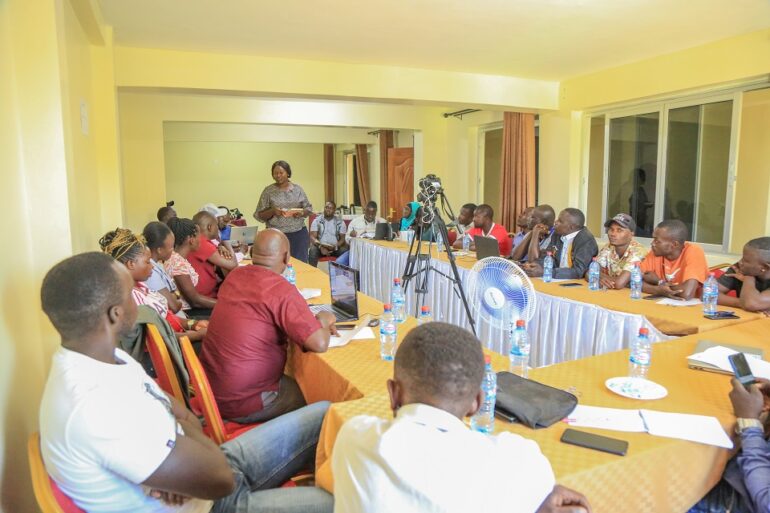On February 14, 2025, we (BAKE) convened a pivotal forum at Hesa Hotel in HomaBay County to address challenges brought about by the digital divide. The event brought together key stakeholders, including civil society organizations (CSOs), tech experts, content creators, and policymakers, to explore solutions for ensuring broader and more equitable internet access in HomaBay and beyond.
Homa Bay County, like many other regions in Kenya, faces significant barriers to digital inclusion. While internet access is increasingly crucial for exercising the right to information, education, economic opportunities, and civic participation, a large portion of the population remains unconnected. The challenges range from inadequate infrastructure and high costs of connectivity to low levels of digital literacy and limited access to digital devices, especially among marginalized groups.
The forum provided a platform for stakeholders to examine these challenges, shedding light on how the lack of digital access affects various aspects of life, including education, healthcare, business, and governance. Participants also discussed broader concerns such as internet shutdowns, censorship, and the impact of restrictive policies on digital freedoms.
Impact on Communities
Speakers at the event highlighted the real-life consequences of digital exclusion. Students in rural areas struggle to access online learning resources, small businesses miss out on digital marketplaces, and local communities remain disconnected from critical government services. The digital divide exacerbates inequalities, leaving vulnerable populations further behind in an increasingly technology-driven world.
A key takeaway from the discussions was that bridging this gap is not just about expanding internet access but also about ensuring that communities have the knowledge and tools to use digital technologies effectively. The forum emphasized the need for digital literacy programs to empower individuals with the skills necessary to navigate the online space safely and productively.
Exploring Solutions and Strategies
The event fostered insightful discussions on potential strategies to bridge the digital divide in HomaBay.
These included:
Infrastructure Development: The discussions explored areas such as encouraging investments in broadband expansion and innovative connectivity solutions, such as community networks, to reach underserved areas. The importance of public-private partnerships in rolling out internet infrastructure was also highlighted, with emphasis on sustainable and scalable models that prioritize long-term connectivity solutions.
Affordable Internet Access: Advocating for policies that promote competitive pricing and subsidized connectivity for low-income households. Participants discussed innovative pricing models that could make the internet more accessible to marginalized communities, including government-led initiatives and corporate social responsibility programs from telecom providers.
Enhancing Digital Literacy: Strengthening training programs to equip individuals, especially youth and women, with essential digital skills. The need for incorporating digital literacy into the education curriculum was emphasized, along with community-driven training sessions that focus on cybersecurity, online safety, and digital financial inclusion.
Fostering Local Content Creation: Supporting content in local languages and addressing the specific information needs of HomaBay communities. The event highlighted the role of local creators in developing relevant, engaging, and culturally appropriate content that resonates with the community while also fostering economic opportunities in digital media.
Policy and Advocacy: Pushing for legislative frameworks that protect digital rights and promote universal access to the internet. The need for policy reforms to prevent digital discrimination and ensure inclusive access for people with disabilities was also discussed. A crucial segment of the forum centered on the role of policy in expanding internet access and safeguarding digital rights. Discussions explored the need for progressive legislative frameworks that ensure affordability, inclusivity, and fair digital access for all.
Experts emphasized the importance of engaging policymakers to push for reforms that encourage infrastructure development, prevent digital censorship, and empower communities to leverage the internet for social and economic progress.
The forum concluded in agreement that multi-stakeholder engagement is necessary to develop sustainable solutions that will not only increase connectivity but also ensure meaningful use of the internet for socio-economic development.
We remain committed to driving digital inclusion efforts across Kenya and will continue advocating for policies that create a fair and open digital space.
